EU chief von der Leyen faces no confidence vote
Protesters defy curfews in major U.S. cities to march against police brutality
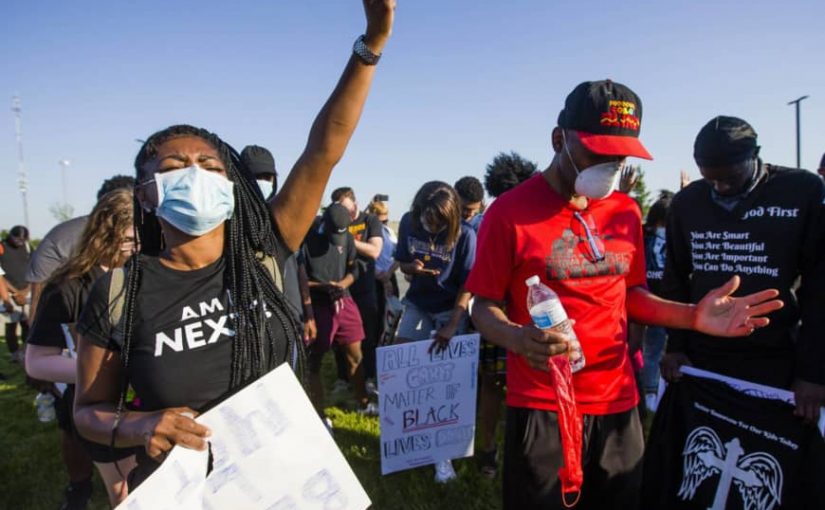
People pray at a police station in South Bend, Indiana, on Tuesday. [South Bend Tribune via AP]
Tens of thousands of people took to the streets of major U.S. cities on Tuesday for an eighth consecutive night of protests over the death of a black man in police custody, defying pleas by mayors, strict curfews and other measures meant to curtail them.
Major marches took place in Los Angeles, Philadelphia, Atlanta and New York as well as in Washington, near the park where demonstrators were cleared on Monday to make a path for President Donald Trump so he could walk from the White House to a historic church for a photo.
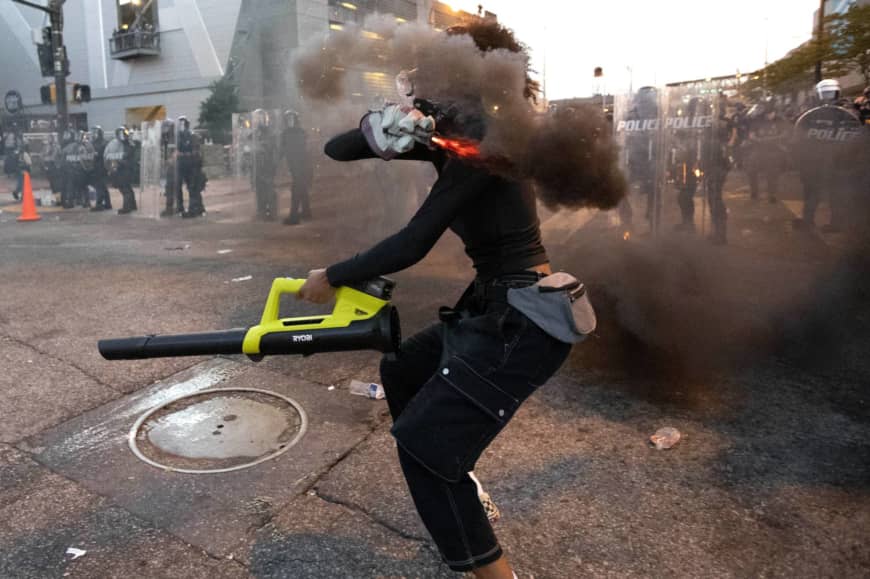
Outside the U.S. Capitol building on Tuesday afternoon a throng took to one knee, chanting “silence is violence” and “no justice, no peace,” as officers faced them just before the government-imposed curfew.
The crowd remained in Lafayette park and elsewhere in the capital after dark, despite the curfew and vows by Trump to crack down on what he has called lawlessness by “hoodlums” and “thugs,” using the National Guard or even the U.S. military if necessary.
After the curfew began in New York City, thousands of chanting and cheering protesters marched from the Barclays Center down Flatbush toward the Brooklyn Bridge as police helicopters whirred overheard.
A crowd, gathered at an entrance to the Manhattan Bridge roadway, chanted at riot police: “Walk with us! Walk with us.”
Police in riot helmets, far fewer than on previous nights, watched at a distance from the sidewalk as cars honked rhythmically in support.
On Hollywood Boulevard in Los Angeles, hundreds of people filled the street from curb to curb, marching past famous film industry landmarks. Others gathered outside Los Angeles Police Department headquarters downtown, in some cases hugging and shaking hands with a line of officers outside.
Los Angeles was the scene of violent riots in the spring of 1992, following the acquittal of four policemen charged in the beating of black motorist Rodney King. Those riots led to more than 60 deaths and an estimated $1 billion in damage.
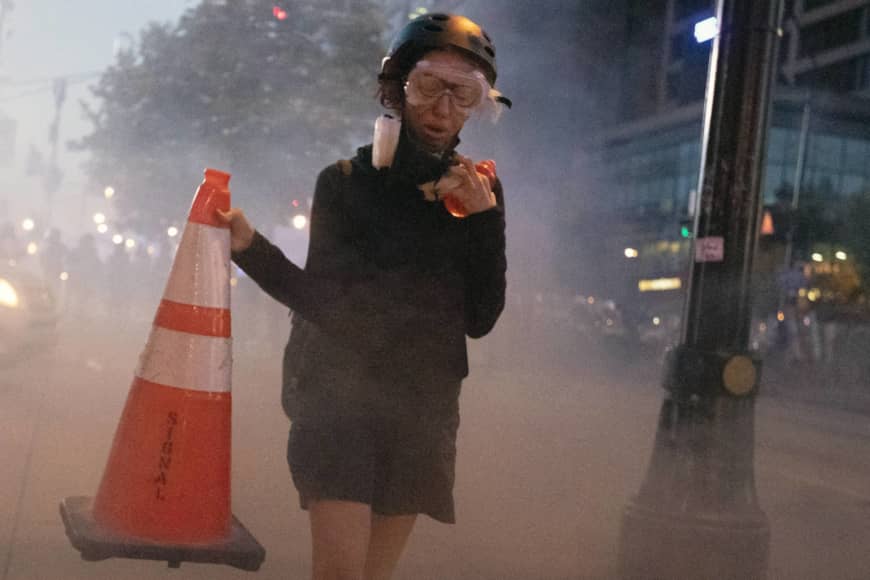
A majority of Americans sympathise with the protests, according to a Reuters/Ipsos poll released on Tuesday.
The survey conducted on Monday and Tuesday found 64 percent of American adults were “sympathetic to people who are out protesting right now,” while 27 percent said they were not and 9 percent were unsure.
More than 55 percent of Americans said they disapproved of Trump’s handling of the protests, including 40 percent who “strongly” disapproved, while just one-third said they approved — lower than his overall job approval of 39 percent, the poll showed.
In Minneapolis, Roxie Washington, the mother of Floyd’s 6-year-old daughter, Gianna, told a news conference he was a good man. “I want everybody to know that this is what those officers took from me,” she said, sobbing. “Gianna does not have a father. He will never see her grow up, graduate.”
The head of the U.S. National Guard said on Tuesday that 18,000 Guard members were assisting local law enforcement in 29 states.
Floyd died after a white policeman pinned his neck under a knee for nearly nine minutes in Minneapolis on May 25, reigniting the explosive issue of police brutality against African Americans five months before the November presidential election.
The officer who knelt on Floyd, 44-year-old Derek Chauvin, has been charged with third-degree murder and second-degree manslaughter. Three other officers involved were fired but have not yet been charged.
Trump has threatened to use the military to battle violence that has erupted nightly, often after a day of peaceful protests. He has derided local authorities, including state governors, for their response to the disturbances.
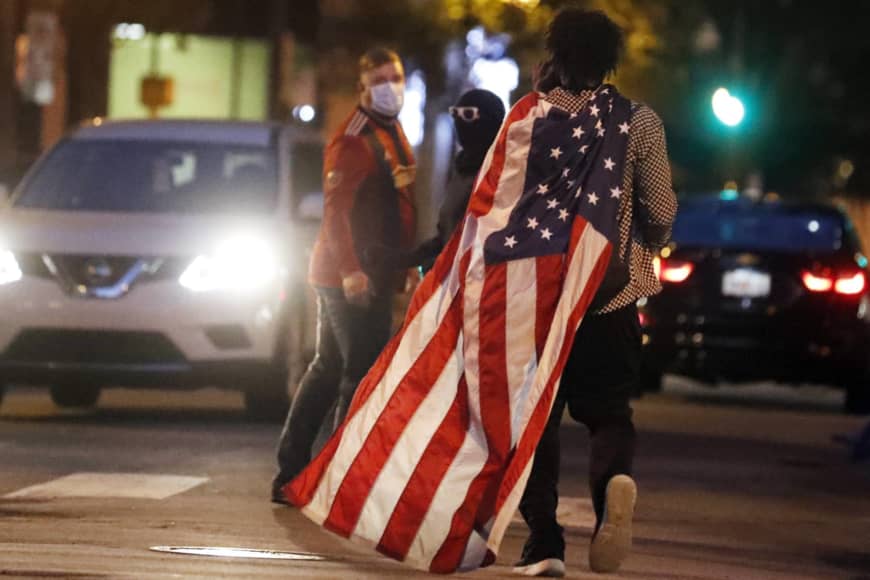
Officers were injured in clashes elsewhere, including one who was in critical condition after being hit by a car in the Bronx, police said.
The protests come on the heels of lockdowns to prevent the spread of the novel coronavirus, which hit African Americans disproportionately with high numbers of cases and job losses.
Some of those who have gathered at the site of Floyd’s killing have invoked the nonviolent message of the late U.S. civil rights leader Martin Luther King Jr., assassinated in 1968, as the only way forward.
“He would be truly appalled by the violence because he gave his life for this stuff,” said Al Clark, 62, a black man who drove to the Minneapolis memorial with one of King’s speeches blaring from his truck.
“But I can understand the frustration and anger.”



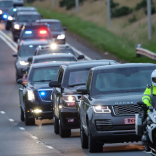

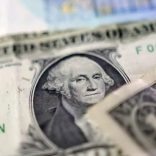
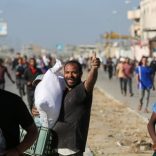





Leave a Reply
Be the First to Comment!
You must be logged in to post a comment.
You must be logged in to post a comment.